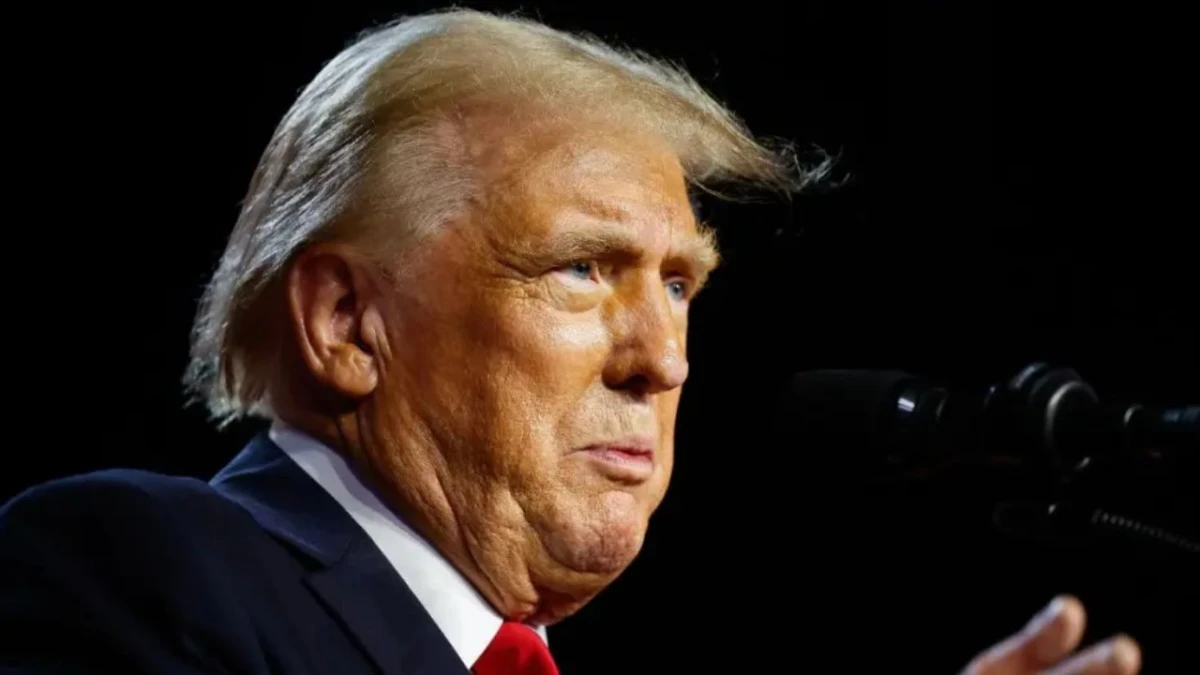
The elected president of the United States, Donald Trumppromised to take drastic measures in his second term, including the largest deportation of immigrants in the country’s history, as well as new tariffs, an isolationist foreign policy and greater investment in fossil fuels. But it is precisely his immigration plan that has generated the greatest concern after his victory against Democrat Kamala Harris, since made anti-immigration rhetoric the central axis of his campaign.
>>>Continue reading: Kamala Harris: “We must accept defeat; “We will participate in a peaceful transition of power.”
Immigration restrictions and the elimination of protections for some nationalities are some of the measures that could mark Trump’s return to the presidency of the United States, according to analysts, who however consider it difficult for him to carry out mass deportations as he promised during the campaign.
Indeed, the former Republican president went from his 2016 slogan to build a wall on the border with Mexico to promise to create the “largest mass deportation program” in the country’s history, giving National Guard reservists, sheriffs and local police the power to arrest undocumented immigrants.
In addition, it seeks to restrict both irregular and regular migration, implementing an “ideological assessment” for those who apply for a visa, eliminating the right to citizenship by birth and limiting the entry of migrants for public health reasons. He also wants to veto the entry of citizens from certain Muslim-majority countries, as he tried to do in his first term.
>>>We recommend: Immigrating to the United States in the new era of Donald Trump: what awaits Colombians and Latinos?
His supporters, many of them Latino, placed border security as one of the deciding factors in their vote and embraced his promise of mass deportations.
Aaron Reichlin-Melnick, an advisor to the American Immigration Council, a nonprofit organization, anticipates that first on Trump’s border agenda will be the adoption of measures to minimize legal migration. “He will likely invoke section 212 f of the Immigration and Nationality Act, which allows him to impose bans on people entering the United States or seeking visas,” he said.
He will likely invoke Section 212f of the Immigration and Nationality Act, which allows him to impose bans on people entering the United States or seeking visas.
Aaron Reichlin-Melnick, advisor to the American Immigration Council
“This was the (so-called) Muslim ban, or travel ban, of his first term, and he has promised to bring it back and potentially expand it in his second term,” he said.
Reichlin-Melnick also thinks that Trump will put an end to the migration alternatives that Democrat Joe Biden’s government established for citizens of countries like Cuba and Venezuela for humanitarian reasons, which allowed tens of thousands of people to enter the United States.
What economic consequences would a mass deportation have?
Reichlin-Melnick sees a probable increase in military presence on the border with Mexico, as well as greater deployment of the military sector, which until now is limited to logistical support. It is there that the effect of his victory could be felt first.
“What we have seen in past elections is that the number of migrants arriving at the border tends to rise,” explained Adriana Jasso, of the American Friends Service Committee NGO. “And the reason (…) is that at least now they have, let’s say, notion or knowledge of what exists, but after the next president assumes power, there will not be the same certainty. Especially in the case of a drastic change like this “, he said.
Experts are skeptical about Trump’s ability to carry out mass deportation operations.
Reichlin-Melnick maintains that the real number of undocumented immigrants ranges between 13 and 15 million, and an operation of such dimensions would require hundreds of millions of dollars, tens of thousands of agents and decades of continuous action, so he considers that “not It’s realistic.” The immediate consequence of an action of this magnitude, he estimated, would be a drop in GDP of between 4.2% and 6.8%.

Caracol News
“And what does this mean? During the Great Recession, GDP fell 4.3%, so deporting the entire undocumented population would collapse the United States economy,” he explained.
But the analyst also sees another risk for the economy. More than one and a half million people, including citizens of Venezuela, El Salvador and Haiti protected by temporary protected status, and those assigned to the DACA program, who have spent most of their lives in the United States without obtaining citizenship , they run the risk of losing their legal protection by decision of the Executive.
“As we saw in Trump’s first term, his administration is very willing to revoke legal status for hundreds of thousands of people,” Reichlin-Melnick said.
“If these people leave the workforce out of fear or because they are deported, there will be a significant labor shortage and inflation and the cost of goods will increase, causing the economy to contract,” he said.
“Either way we would see a significant economic impact,” he said. “Undocumented immigrants are a crucial part of the American economy.”
Source: https://www.noticiascaracol.com/mundo/trump-cumplira-promesa-de-deportacion-masiva-asi-impactara-su-nuevo-mandato-al-sistema-migratorio-rg10


